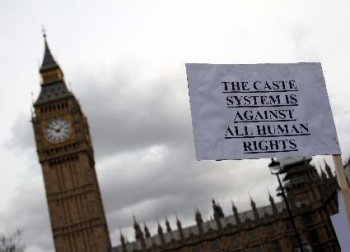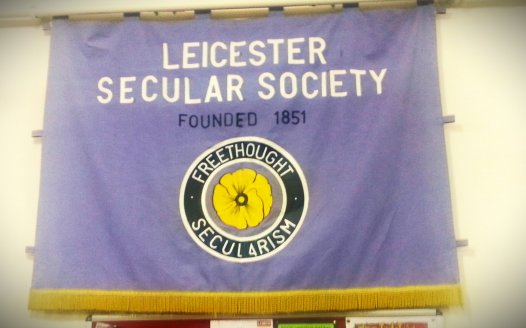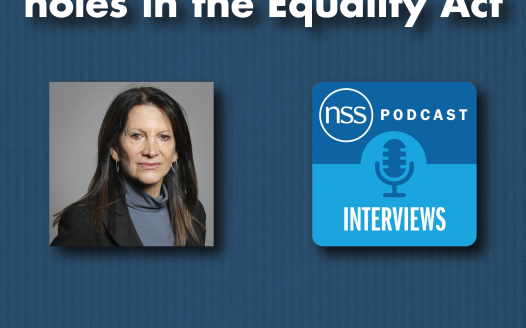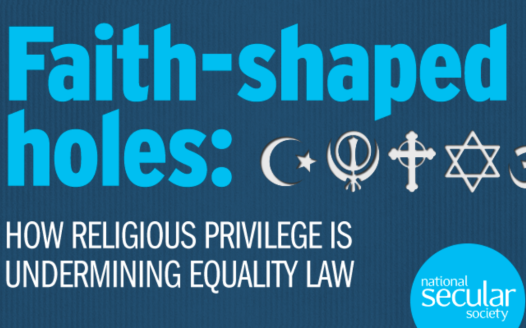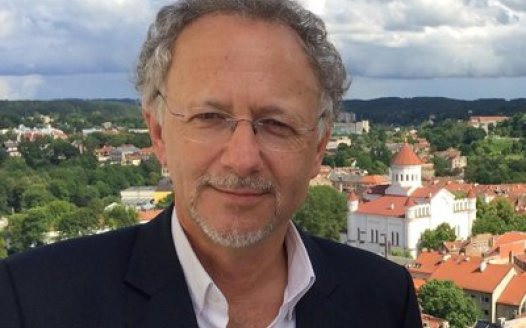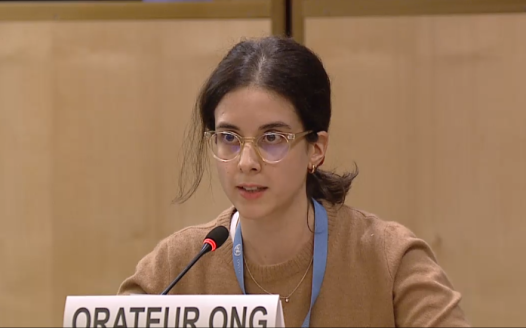NSS: government decision on caste discrimination shows "callous disregard for victims"
Posted: Mon, 23rd Jul 2018
The National Secular Society has accused the government of showing "callous disregard for victims" after it announced it would not explicitly recognise caste-based discrimination under equality legislation.
In its response to a public consultation, the Government Equalities Office said it would rely instead on 'emerging case-law as developed by courts and tribunals' to tackle the issue.
In justifying the decision, the government described legislating for caste as an "exceptionally controversial issue" and "deeply divisive within certain groups".
NSS president Keith Porteous Wood strongly criticised the decision.
"Choosing not to recognise caste-based discrimination under equality legislation demonstrates a callous disregard for victims.
"Legislation outlawing caste discrimination is the only way to provide legal protection at a reasonable cost. Case law remedies are uncertain and ruinously expensive as has already been demonstrated in the courts, where no one has yet succeeded in making a case.
"Victims being left with no legal protection is the most likely outcome of this decision, which could not be more at odds with Prime Minister May's commitment to help those disadvantage by their background.
"The government clearly feels under pressure not to upset 'high caste' Hindus, both in the UK and India. But the decision flies in the face of repeated pleas from the United Nations and there may yet be legal means to challenge it."
Dawn Butler MP, Labour's shadow minister for women and equalities, also expressed her disappointment at the decision.
"It is very disappointing that the government has performed a U-turn on the decision to bring caste discrimination under equality law," she said.
"Caste-based prejudice and discrimination is a gross violation of human rights and must not be tolerated. All individuals have the right to protection against discrimination on the basis of their caste or perceived caste, in the same way that they do on the basis of race or gender."
Research has estimated that at least 50,000 (and perhaps in excess of 200,000) people living in the UK are regarded by some as 'low caste' and at risk of caste discrimination. The research found evidence of caste-based discrimination, harassment and bullying present in employment, education and in the provision of services.
Between March and September 2017 the government's equalities office consulted on whether legal protection for victims of caste-based discrimination could best be protected through developing case law (where caste can be seen as an aspect of ethnicity) or by outlawing caste through the Equality Act 2010.
A provision in the act that enabled secondary legislation to be passed by a ministerial order was replaced in 2013 by an instruction by parliament to the government to outlaw such discrimination. Following this consultation, the government proposes to repeal these provisions.
Over half of the respondents to the consultation were 'in favour of relying on case-law'. Over 20% rejected both options, which the government considered as a call to "introduce new legislation that would prevent the possibility of caste being a legal concept in domestic law". The government rejects this position.
In its response the government said it considered it "likely that anyone who believes that they have been discriminated against because of caste could bring a race discrimination claim under the existing ethnic origins provisions in the Equality Act 2010".
It argues that there is no universally accepted definition of caste, and so "case-law can be more flexible and allows the concept of caste to be developed and refined over time" – but only in cases where a claimant can show that their caste is related to their ethnic origin, religion or belief.
Meena Varma, Director of Dalit Solidarity Network UK, was shortlisted for the 2018 Secularist of the Year award for her work tackling caste based discrimination. Speaking at the event earlier this year, she said: "Caste discrimination is a human rights issue and can only be addressed when it is seen through a lens separate to religion and when the rich and powerful are not the only ones to have the ear of governments."
While you're here
Our news and opinion content is an important part of our campaigns work. Many articles involve a lot of research by our campaigns team. If you value this output, please consider supporting us today.

